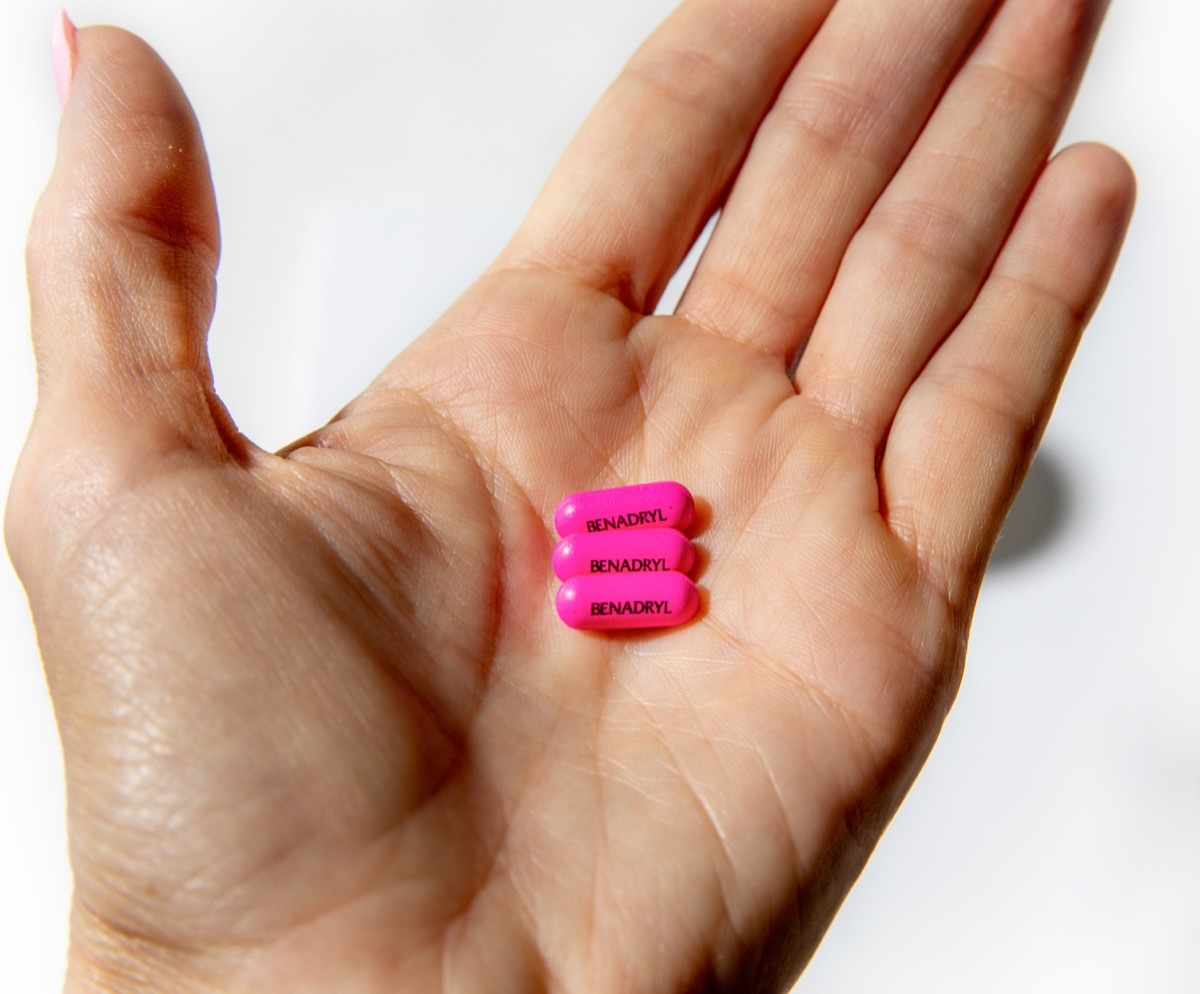This OTC Medication Can Increase Your Dementia Risk, Experts Warn
It may have other acute side effects as well, according to the FDA.

As you age, protecting your fungsi kognitif is just as crucial as any other aspect of physical health. While there is no one way to definitively ward off dementia, experts say there are certain modifiable factors that can help lower your risk, including eating a healthy diet, exercising regularly, and avoiding excessive alcohol consumption. And it turns out that avoiding one common type of over-the-counter (OTC) medication may be key, as well—especially if you're already at high risk for dementia. Read on to learn who is most at risk, which OTC medication could make your dementia risk soar, and how to spot its active ingredient in the many different products that contain it.
READ THIS NEXT: This Popular OTC Drug Can Easily Cause "Severe Damage," Doctor Warns.
Some people are at higher risk for developing dementia.

According to the Mayo Clinic, factors that may put you at heightened risk for dementia include advanced age (being over 65) and having a family history of dementia. In addition, having certain linked conditions—specifically Huntington's disease, Creutzfeldt-Jakob disease, Parkinson's disease, or a traumatic brain injury—may also increase your chances of developing dementia.
READ THIS NEXT: This Popular Med Is "The Most Dangerous OTC Drug," According to Doctors.
Taking this OTC medication can raise your risk of dementia.

Diphenhydramine (DPH) is an antihistamine medication with a wide range of uses, including the treatment of allergies, insomnia, the common cold, overactive bladder and other forms of urinary dysfunction, nausea, and certain symptoms of Parkinson's. As such, it's found in many OTC medications under various brand names and generics.
However, the Mayo Clinic says this particular medication "can worsen memory" and recommends avoiding it if you are considered to be at high risk for dementia. Corroborating this notion is a 2015 study published in JAMA Internal Medicine, which found that among 3,500 seniors, subjects who took this type of anticholinergic drug were more likely to have developed dementia than those who did not. In fact, people who took them for three years or longer had a 54 percent higher risk of dementia than participants taking the same dose for three months or less.
"The advice is not only for people at risk of dementia. It is actually for anyone who is experiencing cognitive decline, an issue typically seen in older adults," Manish Mishra, MBBS, a medical reviewer for addictionresource.net tellsHidup terbaik. "However, people at risk of dementia are instructed as such because these medications may worsen already present (yet subtle) symptoms."
It's most commonly marketed under these brand names.

Diphenhydramine is most often branded as Benadryl, a popular OTC medication used to treat allergies. However, the Mayo Clinic also recommends that you "avoid over-the-counter sleep aids that contain diphenhydramine," such as Advil PM and Aleve PM.
Other branded products that contain diphenhydramine include Bayer Aspirin, Tylenol, Dimetapp, Ivarest, Sominex, Unisom, and more. Speak with your doctor if you are unsure of whether a product contains this active ingredient.
For more health news sent directly to your inbox, sign up for our daily newsletter.ae0fcc31ae342fd3a1346ebb1f342fcb
The FDA has issued this warning about the drug's safety.

The simplest way to avoid any potential side effects of OTC medications is to check medication labels carefully and discuss any concerns you may have with a doctor or pharmacist. "Always read the Drug Facts label included on all OTC medicines to find out if they contain diphenhydramine, how much and how often you should take them, and important safety information," advises the U.S. Food & Drug Administration (FDA).
They also note that this particular OTC drug can cause serious acute side effects if taken in excess. "Do not take more than the dose listed on the label, as doing so can cause serious problems. If someone takes too much diphenhydramine and is hallucinating, can't be awakened, has a seizure, has trouble breathing, or has collapsed, immediately get medical attention or contact poison control at 1-800-222-1222," their experts urge.
READ THIS NEXT: If You Do This Common Thing With Your Pills, Have Your Liver Checked Now.


